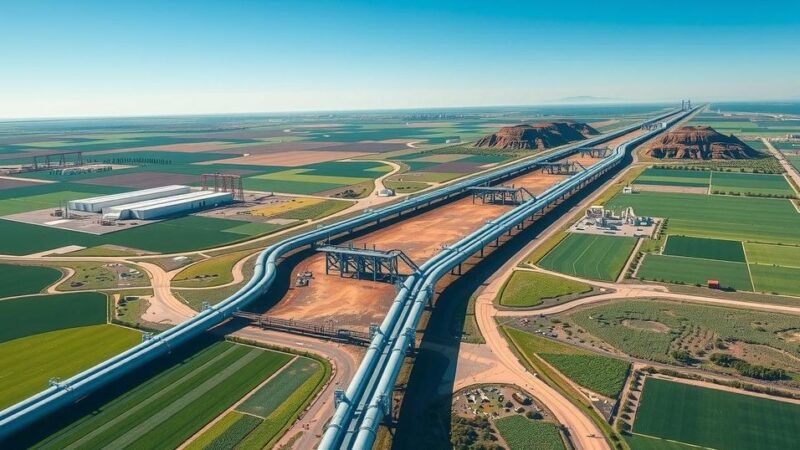The IMF has finalized reviews under ECF and EFF for Cameroon, approving approximately US$73.5 million and US$45.9 million under the RSF. While there is a positive outlook for economic recovery, challenges persist, necessitating reforms in governance, revenue generation, and public management for sustainable growth.
The International Monetary Fund (IMF) Executive Board announced the completion of its seventh reviews under both the Extended Credit Facility (ECF) and the Extended Fund Facility (EFF) arrangements pertaining to Cameroon. This approval enables a disbursement of approximately US$73.5 million. Additionally, the Board completed its second review under the Resilience and Sustainability Facility (RSF), facilitating a further US$45.9 million for Cameroon’s climate initiatives.
Cameroon exhibits ongoing economic recovery; however, growth rates remain subdued. To foster medium-term growth, it is imperative to enhance revenue generation from non-oil sectors, alleviate vulnerabilities in the financial sector, and tackle issues of governance and anti-corruption. Furthermore, Cameroon’s fiscal performance shows commendable efforts in maintaining alignment with program objectives.
The IMF has extended the ECF and EFF arrangements by twelve months, allowing for greater time to implement necessary reforms and policies, while additionally augmenting the total access. The original approvals in July 2021 amounted to SDR 483 million, and the current total disbursements reached SDR 538.2 million. The RSF arrangement was approved for SDR 138 million in January 2024.
Nigel Clarke, the Deputy Managing Director and Acting Chair, highlighted the balanced yet cautious approach to risk management, acknowledging that while the outlook remains positive, risks are skewed negatively. He emphasized the necessity to strengthen public financial management and domestic revenue mobilization to uphold fiscal progress and maintain discipline. Reforms in public enterprises and the energy sector are critical for ensuring fiscal health and economic resilience.
Moreover, Mr. Clarke acknowledged the need for governance reforms, particularly in enhancing the anti-money laundering and combating the financing of terrorism (AML/CFT) regimes, especially to foster private sector growth and improve rankings on financial transparency initiatives. Despite a high risk of debt distress, Cameroon’s current debt levels are deemed sustainable, necessitating urgent reforms in the oil and electricity sectors to mitigate associated risks.
Cameroon has demonstrated meaningful progress under the RSF, and the embrace of reform momentum alongside the strengthening of institutional frameworks for climate policy is essential for resilience against environmental shocks and attracting investment. The economic indicators suggest a cautiously optimistic forecast for sustained growth, yet several areas require focused efforts to secure macroeconomic stability.
In summary, the IMF’s recent evaluations reflect Cameroon’s ongoing recovery, albeit with considerable challenges. With substantial financial support now available, Cameroon must prioritize revenue mobilization, governance reforms, and imperative sectoral reforms to fortify its economic future. The commitment to addressing climate change through the RSF is also pivotal. Continuous monitoring and reform implementation will be essential to sustain macroeconomic stability and development.
Original Source: www.miragenews.com






